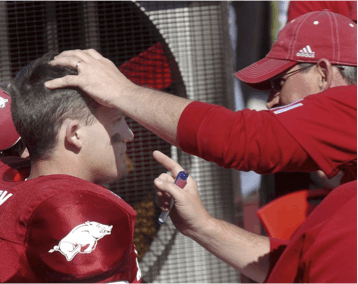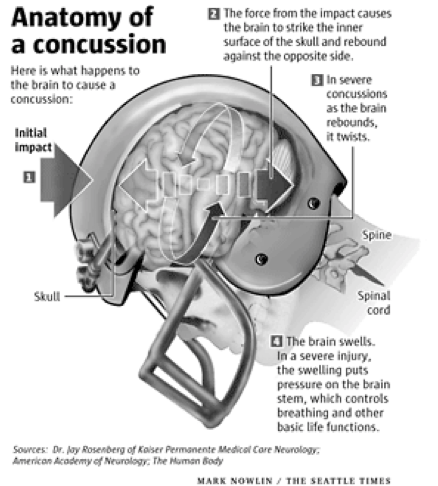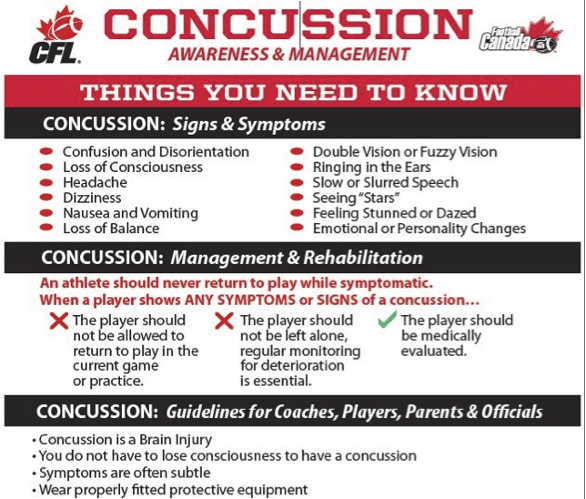Football is a high-energy sport with a lot of contact. Despite the ample padding and use of helmets, football players are still at risk for injury – especially concussion. Head trauma can occur with helmet to helmet contact or even when getting tackled to the ground. While other injuries can occur, today we are going to focus on concussion management.
There has been a lot more information and research done on concussions lately and it doesn’t just include football players. Any athlete can be at risk for a concussion – with player contact, a fall, or getting hit by a projectile object. If your child has any kind of head injury while playing sports, they should be thoroughly evaluated by their doctor before returning to play – even if they say they don’t have any symptoms at that time.
Here are some important things to remember:
- You don’t have to lose consciousness (get knocked out) to get a concussion
- Look out for dizziness, nausea, headache, loss of balance, drowsiness, difficulty concentrating, numbness/tingling, and blurry vision
- You should NOT be exerting yourself physically or mentally if you have any of these symptoms!
- Treatment of a concussion includes physical rest and mental rest – no screen time (including texting), reading, homework, or even school if symptoms are severe enough
- You must be completely free of symptoms before you return to play. Your doctor or athletic trainer should take you through a series of mental and physical tasks to ensure you are ready to return to competition without symptoms (ask if your child’s school takes baseline assessments at the beginning of the season for comparison).
- There is something called second impact syndrome. If your child returns to their sport while still experiencing symptoms and receives another blow to the head, they are at risk for serious brain injury, herniation, and even death. This syndrome is relatively rare but it is important to allow the brain to fully heal before returning to play.

If your child has experienced a head injury, make sure they are cleared by their doctor and are symptom free before getting back in the game!
-Erin Bell PT, DPT
References:
- https://www.stopsportsinjuries.org/concussion.aspx
- https://www.ncbi.nlm.nih.gov/pmc/articles/PMC2672291/
Images:
- https://www.caremattersllc.com/tbi/brain-injury-concussion.php
- https://www.knowconcussion.org/2012/09/26/kevin-glenn%E2%80%99s-set-to-start-despite-his-%E2%80%9Cheadache%E2%80%9D-raising-questions-about-cfl-concussion-protocols/
- https://www.ajc.com/news/lifestyles/health/college-football-players-concussion-rates-double/nQXDh/


